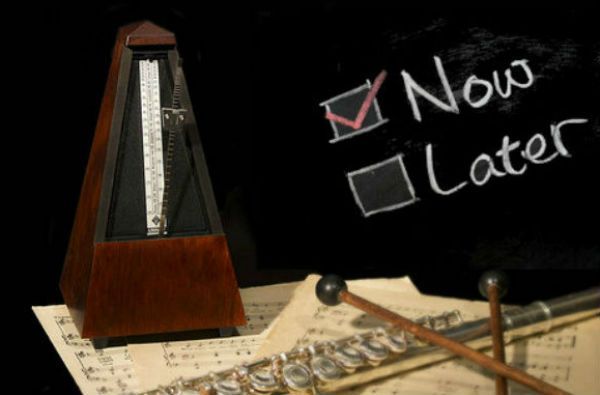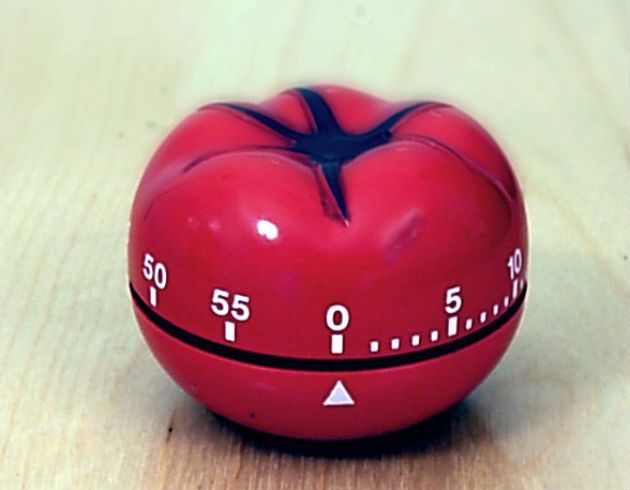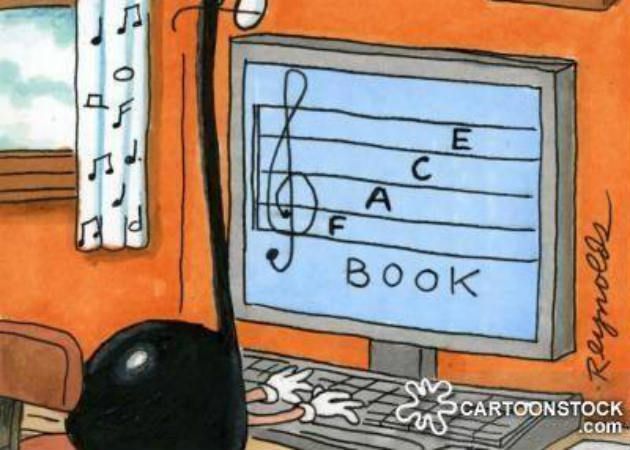Stop making excuses, procrastinators. Whether you overestimate your “natural talent”, complaining about “not having enough time” or being “too old to succeed anyway,” there is no way you can master your music technique without proper practice. Yes, musical talent is a gift, but, like any gift, you must reach out and take it, and the more you do, the more your talent will grow. Let’s leave Muses and other deities visiting shepherds and bestowing the gift of poetry/music upon them to Greek Mythology.
Here is how we think you can make the most of your productivity.
1. Create a practice-friendly environment
The spontaneous practice is the key to success, so make sure you place your instrument (provided it’s a portable one) within reach. Do you spend a lot of time at your computer desk because, aside from playing your instrument, you also like coding? Place your flute next to your keyboard. Do you enjoy studying your hard copies while lounging in an armchair? Simply position your instrument underfoot. Without thinking about it, you will see it, pick it up and start playing: in fact, whenever you need to take a break from coding, reading, studying or writing, your instrument will await you, and by always having it on hand you will practice scales, arpeggios, and even longer exercises without even realizing it. It won’t be a chore, but a pleasurable divertissement.
2. Practice whenever you can, even just for five minutes
Have you ever lived with a roommate who would play his instrument in any situation—during breakfast, tv commercials, before going out to dinner, and maybe on a late Sunday morning while waiting for his eggs to be cooked to perfection? At that time, you might have deemed him/her the most annoying person ever, but, come think of it, this person got handier and handier with difficult passages by just practicing them for short periods of time, as often as s/he could. It’s like finding a couple of minutes every day to go through, say, five sets of lower abs, ninety seconds of the plank and one-hundred squats.
3. If you feel zone-out after a while, try the Pomodoro technique
Have you ever felt increasingly bored while practicing for an extended period of time and gotten too lazy to power through?
It turns out that stopping for a few minutes, even to watch an extremely silly tv show, is actually beneficial to your learning abilities. Taking a short break to get back in focus is actually a well-known productivity method that goes by the name of the Pomodoro technique. It’s a time management system invented by Francesco Cirillo that works with the tendency of the human mind to become overwhelmed by too much work. The Pomodoro technique suggests breaking a bigger project into smaller tasks and separating each of those by smaller breaks, which will help you recharge your batteries. It’s called the Pomodoro technique because Cirillo used a tomato-shaped kitchen timer (Pomodoro in Italian) to time his session and breaks. Since you will have a break to look forward to, you will also be more likely to work harder during your work periods.
What you have to do is choose a task to be accomplished, set your timer to 25 minutes, work until it rings, take a short break (up to 5 minutes) and then start another 25-minute session. Every four sessions, you can take a longer break.
4. Put off checking your social media handles
This tip may, at first sight, contradict what we preached so far, but you may agree that being too plugged in really hinders your productivity. Facebook, Whatsapp, Snapchat, etc. need constant checking, and they are guilty of breaking focus. So, as a corollary to the Pomodoro technique, set aside a few designated times to interact with your social media community of friends. Set a timeframe to respond to emails, another one to engage in sheer social media activity. If your “plugged-in” time becomes an item of your “to-do list” rather than an aimless refreshing and scrolling, mostly dictated by boredom, it will no longer kill your productivity.
5. Avoid repetition
The importance of repetition is a notion that we are taught upon our introduction to musical training. “Play each passage ten times before moving on” was a mantra we all had to abide by, even though we really did feel annoyed and spaced out at the end of such a task. Well, turns out that our brains are not hardwired to pay attention to repetition. They like to change! Think of how pre-verbal infants react to stimuli: show a baby the same object over and over again and, at the end of the day, he will just stop paying attention to it. This process is called “habituation.” However, if you change the object, attention will return to its fullest. Even among adults, fewer stimuli mean reduced brain activation. So try to vary your practice session as much as you can. In a 25-30 minute session, try to practice at least three different excerpts/passage. You can either devote ten minutes to each of those or divide your schedule into ten three-minute sessions, and sequentially practice each passage within its three-minute time window, and repeat the cycle until you reach your 30-minute goal.
6. Choose what to practice next
Have you ever had a “what now?” moment after you are done practicing a particular piece? Being at loss as to what to do is a huge productivity killer, so make sure you plan ahead of time what to practice next. Alternatively, have your instructor give you a sensible list of compositions you can study and practice.
7. Just do it!
Overwhelmed by a task and at loss as to where to begin? There’s no best way to go about it than just starting. If you know you have to tackle the first Prelude of Rachmaninoff but you have no idea how to convey that pathos that has most pianists end up drenched in sweat, just start playing, and, eventually, things will take care of themselves. Diving into a cumbersome task headfirst can get your productivity (and creativity) flowing.
Please Note: those pieces of advice can be tweaked to any purpose other than music, be it writing, dancing, studying et cetera.



